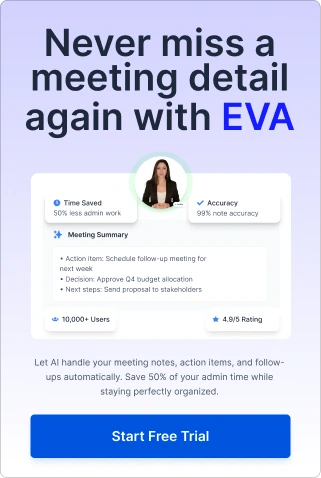Table of Contents
Introduction: The Growing Importance of AI in SaaS
In the competitive world of SaaS, every tool, every decision, and every investment must directly contribute to your bottom line. Artificial Intelligence (AI) is no longer a futuristic concept—it’s a strategic necessity. For SaaS companies, integrating an AI website assistant isn’t just a matter of staying on trend; it’s about driving revenue, increasing efficiency, and gaining a competitive edge.
In this article, we’ll break down the ROI of AI website assistant for SaaS businesses, exploring how this powerful tool can directly impact key SaaS metrics, including customer engagement, conversions, retention, and operational costs. By the end of this post, you’ll understand not only how AI assistants boost your SaaS business but also how to measure their financial value.
What is an AI Website Assistant?
Before we dive into the financial impact, let’s clarify what an AI website assistant is. Simply put, it’s an AI-powered tool embedded on your website that engages with users in real-time. It can assist with common customer inquiries, guide users through the website, provide personalized product recommendations, and even collect valuable data on user behavior.
Key Metrics Affected by an AI Website Assistant
To truly understand the ROI of AI website assistant for SaaS businesses, let’s look at the key areas where it directly impacts your SaaS business:
1. Increased Conversions and Lead Generation
Conversions are the lifeblood of any SaaS business. Whether it’s converting trial users into paying customers or getting website visitors to sign up for a demo, increasing conversions is critical for growth. AI website assistants can make a measurable difference in this area by:
- Engaging Visitors in Real Time: AI assistants proactively engage users based on their actions on your site. For example, if a visitor lingers on your pricing page or hesitates at checkout, the assistant can offer instant help—such as explaining features or answering pricing-related questions. This real-time interaction increases the likelihood of conversions.
- Lead Qualification: Instead of waiting for visitors to fill out a contact form, AI assistants can qualify leads as they interact with your site. They can ask qualifying questions, assess visitor intent, and route qualified leads to your sales team for follow-up, ensuring no lead is missed.
ROI Impact:
Studies show that AI-driven personalization can boost conversion rates by up to 20-30%. For SaaS businesses, this means higher customer acquisition without additional marketing spend.
2. Reduction in Operational Costs
One of the biggest cost drivers for SaaS businesses is customer support. With an AI assistant handling routine inquiries, your support team can focus on more complex tasks, thus improving efficiency and reducing operational costs.
- Automating FAQs: An AI assistant can handle thousands of frequently asked questions (FAQs) instantly, from explaining product features to troubleshooting common issues. Instead of hiring more support agents or dedicating significant human resources to FAQs, the AI assistant does this work on your behalf.
- 24/7 Availability: While human support agents typically work in shifts, an AI assistant never sleeps. It’s available around the clock to handle customer inquiries, particularly useful for SaaS businesses with a global user base. This decreases the need for around-the-clock human support.
ROI Impact:
AI assistants have been shown to reduce customer support costs by 30-40% due to their ability to handle basic queries and reduce response times. The savings can be reinvested into more strategic initiatives like product development or marketing.
3. Enhanced Customer Retention and Satisfaction
Customer retention is crucial for SaaS businesses. If your churn rates are high, it could mean that users aren’t finding enough value in your product. A smart AI website assistant helps improve customer retention by offering:
- Proactive Customer Engagement: AI assistants engage users at various points in their journey, from onboarding to troubleshooting. By proactively offering help and checking in with users, they ensure that customers are getting the most out of your product, leading to increased satisfaction.
- Tailored Support: AI assistants can help users with personalized recommendations based on their usage patterns. For example, an AI assistant might suggest new features or workflows to users, ensuring they get the most value out of their subscription, which directly influences retention.
ROI Impact:
A 5% increase in customer retention can lead to a 25% to 95% increase in profits. AI’s ability to enhance user experience and reduce churn directly drives profitability.
4. Valuable Customer Insights and Data
Understanding your customers’ behavior is key to optimizing your SaaS offering. An AI website assistant isn’t just a tool for engagement—it’s also a powerful data-gathering engine that tracks customer behavior, sentiment, and feedback.
- Behavioral Analytics: An AI assistant can track user interactions on your website, noting things like which pages they visit most, how long they stay on certain pages, and where they drop off. This data can help your team optimize your site’s layout, messaging, and overall UX to boost conversions.
- Sentiment Analysis: AI assistants can analyze the language of customer interactions and determine the sentiment behind them. This is helpful for identifying potential customer pain points early, allowing you to address them before they lead to churn.
ROI Impact:
According to McKinsey, data-driven businesses are 23 times more likely to acquire customers, 6 times more likely to retain customers, and 19 times more likely to be profitable. With insights from your AI assistant, your marketing team can refine campaigns and boost performance.
5. Faster Time to Market for New Features
AI website assistants can help gather valuable customer feedback in real-time, enabling your team to prioritize new features or changes based on actual user needs. Instead of waiting for lengthy surveys or customer interviews, your AI assistant can automatically capture feedback during user interactions.
- Feature Feedback: If users consistently ask about certain features or express frustration with aspects of the product, you can prioritize those areas for improvement.
- User Testing: AI assistants can also assist in A/B testing new features by collecting real-time data on how users respond to different versions of your product.
ROI Impact:
The ability to quickly iterate and deploy features based on direct customer feedback can reduce your time to market and improve product-market fit. Companies that successfully leverage user feedback experience 25-30% faster growth.
Quantifying the ROI of an AI Website Assistant
To better understand the financial impact of an AI website assistant, consider the following example:
- Increased Conversions: If your AI assistant boosts conversion rates by 20% and you’re acquiring 100 new customers per month at an average customer lifetime value (CLTV) of $500, this results in $10,000 additional revenue per month.
- Cost Savings: If the assistant reduces customer support costs by 30% and you currently spend $50,000 per month on support, that’s $15,000 in savings each month.
In this example, the ROI for the AI assistant is clear, as the tool directly impacts both revenue and costs, leading to substantial profit growth over time.
Conclusion: The Clear Business Case for AI
Integrating an AI website assistant into your SaaS business isn’t just a “nice-to-have”; it’s a critical component of modern SaaS marketing and customer support strategies. From boosting conversions and reducing operational costs to enhancing customer retention and providing valuable insights, the ROI of AI website assistant for SaaS businesses is clear.
If you’re still on the fence, consider this: your competitors are likely already seeing the benefits of AI, and by not adopting this technology, you risk falling behind. The good news is that getting started is easier than ever with solutions like Paradiso AI, which can help you integrate an intelligent assistant into your website and start seeing measurable results quickly.
Ready to boost your bottom line with AI?
Start your journey with Paradiso AI today and begin experiencing the ROI for yourself.
FAQ: Smart AI Assistants in SaaS Customer Onboarding & Support
AI assistants engage users in real time, providing instant support, personalized recommendations, and addressing concerns that could otherwise lead to abandoned sign-ups. This proactive engagement significantly improves conversion rates.
Yes! By automating responses to frequently asked questions, troubleshooting common issues, and providing 24/7 support, AI assistants reduce the need for a large support team, leading to cost savings.
AI assistants provide valuable behavioral insights, such as which pages users visit, where they drop off, and what common questions they ask. This data helps your marketing and product teams make more informed decisions.
Measure ROI by looking at metrics like increased conversion rates, reduced operational costs, improved customer retention, and valuable customer feedback. Calculate the added revenue and cost savings over a defined period to determine the impact.
Start by choosing an AI website assistant solution that integrates seamlessly with your SaaS platform, like Paradiso AI. After integration, customize the assistant to align with your brand and customer needs, then start tracking the ROI as you go.
 Free
Free










